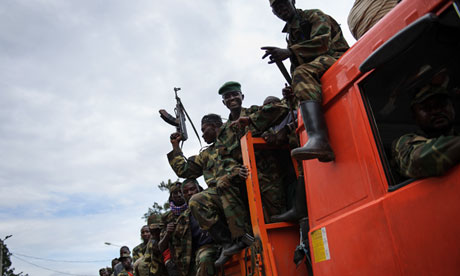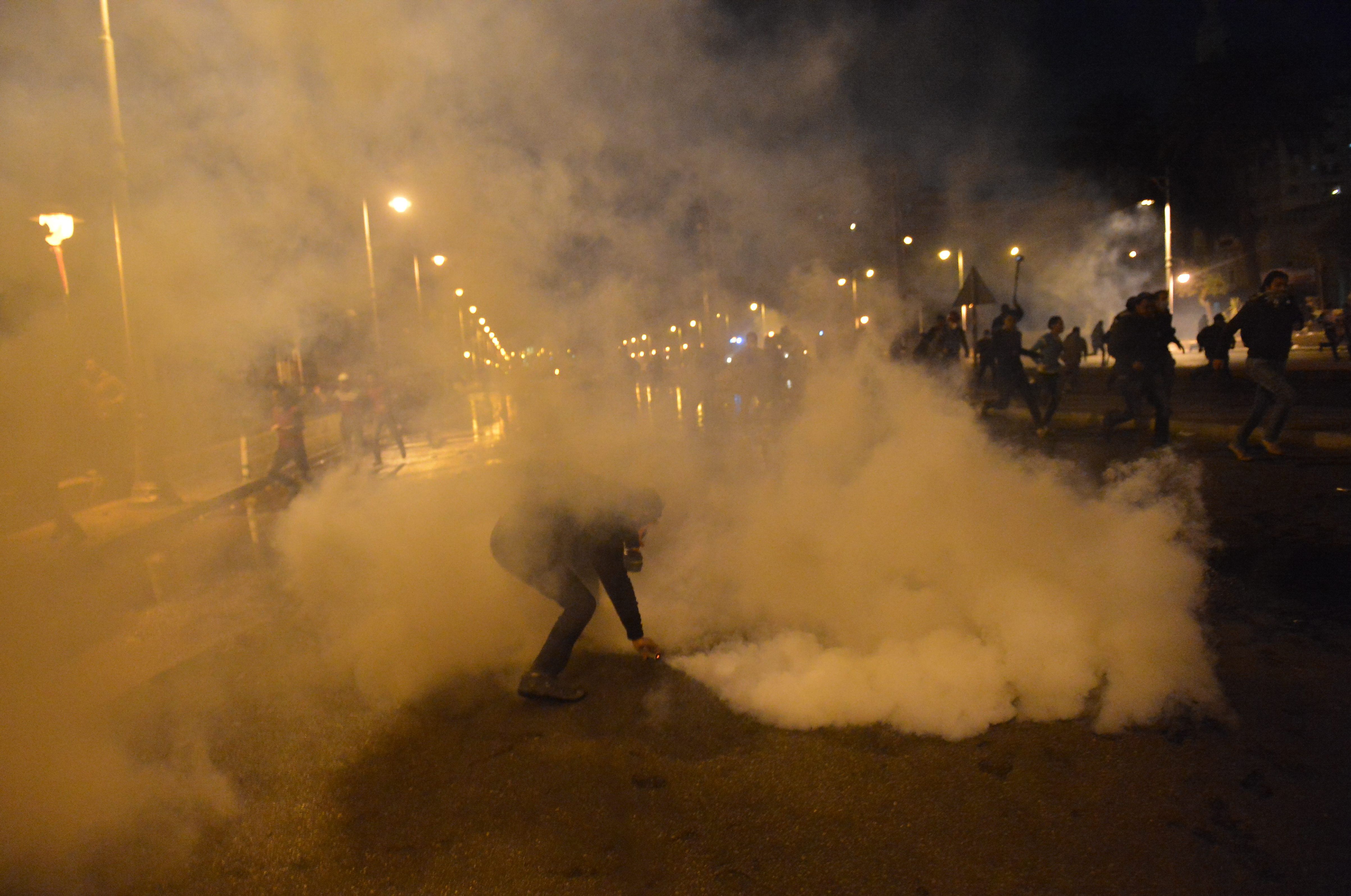By Phil Moore (AFP)

Goma, DR Congo – Rebels in the Democratic Republic of Congo warned on Wednesday they had the entire country in their sights after seizing the key eastern city of Goma, and demanded that President Joseph Kabila leave power.
“We are not going to stop at Goma, we will go as far as Bukavu, Kisangani and Kinshasa,” M23 spokesman Viannay Kazarama told a crowd massed at a stadium in Goma, a day after the rebels easily overran the city.
Kazarama also demanded the departure of Kabila, charging that he was not the legitimate winner of a hotly disputed presidential election last year.
His address to residents gathered in the Goma stadium came as Kabila and his Rwandan rival Paul Kagame were due to hold a new round of talks on the crisis that has stoked fears of a humanitarian catastrophe in the mineral-rich but deeply impoverished area.
The United Nations and other humanitarian groups have reported killings, abductions, looting and extortion of civilians.
The UN accuses Rwanda of backing the ethnic Tutsi M23 fighters, charges denied by Kigali, which in turn accuses DR Congo of supporting Rwandan rebels based in the eastern DRC, which Kinshasa has in turn denied.
“President Kabila and President Kagame held a two-hour meeting together on Tuesday night,” Ugandan Foreign Minister Sam Kutesa told AFP after the meeting in the Ugandan capital Kampala, adding that the talks would continue on Wednesday.
Ugandan President Yoweri Museveni “has been speaking to them, and they agreed to come to discuss the deteriorating situation,” Kutesa added.
Both are expected to meet separately with Museveni, before meeting again all together.
“At least they are talking,” Kutesa said. “I think all is going OK.”
But in Goma, rebels were consolidating their control of the city which they took with ease on Tuesday after a five-day advance, with locals cheering as vehicles packed full of gun-toting M23 fighters drove through the streets.
At the rally in Goma, the capital of mineral-rich North Kivu province, Kazarama called for police and soldiers to join the rebels, who have vowed to continue fighting unless Kinshas agrees to talks.
DR Congo’s Prime Minister Augustin Matata Ponyio said Kinshasa had “lost the battle but not the war”, but insisted that the central African country’s territorial integrity was “non-negotiable.”
A UN spokesman said peacekeepers were still in control of Goma airport – despite rebel claims to have captured it – and that peacekeepers were patrolling. But an AFP reporter saw little sign of them on the streets of Goma.
The UN has around 1,500 “quick reaction” peacekeepers in Goma, part of some 6,700 troops in North Kivu province, backing government forces against the rebels.
The UN defended its peacekeepers after Goma fell, with deputy spokesman Eduardo del Buey saying a battle for the city would have put civilians at risk.
“Do you open fire and put civilians at risk or do you hold your fire, continue your patrols, observe what is happening and remind the M23 that they are subject to international humanitarian and human rights law?” he asked.
The UN Security Council on Tuesday unanimously backed a resolution calling for sanctions against two M23 leaders. The resolution, proposed by France, also demanded an end to all “outside support” for the rebels.
UN Secretary General Ban Ki-moon issued a new condemnation of “grave” human rights violations by the fighters, although retreating government troops have also been accused of looting.
“Reports indicate that the M23 has wounded civilians, is continuing abductions of children and women, is destroying property and is intimidating journalists,” del Buey told reporters.
Rebels in the DRC – M23 among them – have been blamed for hundreds of deaths since they launched their uprising in the east in April.
Tens of thousands of people have fled their homes or camps around Goma, a city of about one million that is sheltering tens of thousands forced from their homes by conflict.
Aid group Oxfam described the situation as “a humanitarian catastrophe on a massive scale” and urged the international community to act.
Global Witness called for both sides to stop fighting for the sake of the civilians.
Kabila has meanwhile urged the population to defend the nation.
In a televised address to the nation on Tuesday, he alluded to Rwanda’s alleged role in the conflict.
“When a war is imposed, one has an obligation to resist,” Kabila said. “I ask that the entire population defend our sovereignty.”
The M23, formed by former members of an ethnic Tutsi rebel group, mutinied in April after the failure of a 2009 peace deal that integrated them into the regular DRC army.
Two wars that shook the whole of DR Congo between 1996 and 1997, and then again from 1998 to 2002, both began in the Kivu region, with Rwanda and Uganda playing active roles in both.
Since 1998, more than three million people are estimated to have died from combat, disease and hunger, and 1.6 million have been left homeless.
The former Belgian colony, known as Zaire under dictator Mobutu Sese Seko, who was toppled in 1997, remains one of the world’s least developed countries despite a wealth of cobalt, copper, coltan, diamonds and gold.

